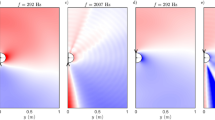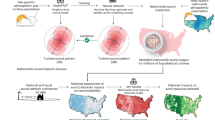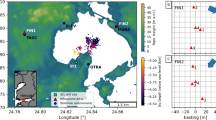Abstract
WITH reference to the letter of Father Schaffers in NATURE of March 10, it is certainly a fact that sounds from moderate distances are heard most plainly when there is a wind reversal at a moderate height and when the upper wind comes from the same direction as the sound. At this place the sound of firing off the east end of the Isle of Wight is heard best when a south wind is blowing over a light wind from some other quarter. As regards conditions when the sound of gun-fire from the Front was heard in this country, I do not altogether agree with what Father Schaffers writes. He says that soundwaves are bent upwards “when temperatures are diminishing and the strength of a head wind is increasing with altitude. The former is at its maximum efficiency in summer, when there is a steep gradient over the surface of the earth; the other is nearly always a characteristic of air-flows, since, as a rule, friction against the soil retards the lower strata”.
This is a preview of subscription content, access via your institution
Access options
Subscribe to this journal
Receive 51 print issues and online access
$199.00 per year
only $3.90 per issue
Buy this article
- Purchase on SpringerLink
- Instant access to full article PDF
Prices may be subject to local taxes which are calculated during checkout
Similar content being viewed by others
Author information
Authors and Affiliations
Rights and permissions
About this article
Cite this article
CAVE, C. The Sound of Distant Gun fire. Nature 107, 140 (1921). https://doi.org/10.1038/107140a0
Issue date:
DOI: https://doi.org/10.1038/107140a0



